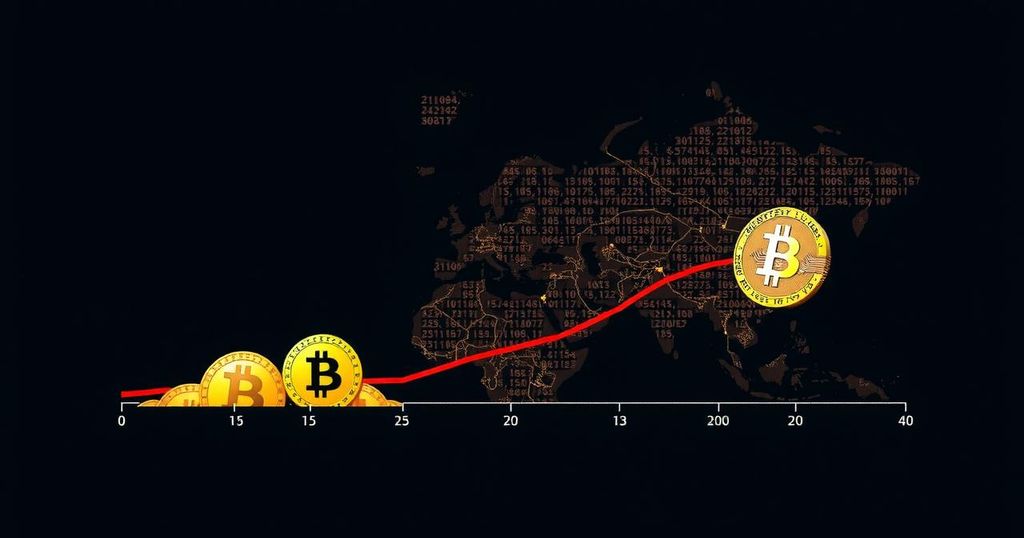Bitcoin Faces $33 Billion Decline Amid Government Selling Concerns
Bitcoin is experiencing a significant downturn, with a decline of $33 billion in cryptocurrency holdings attributed to potential sell-offs by several governments, including the United States, China, the United Kingdom, and Ukraine. As August comes to an end, Bitcoin continues to lag behind more traditional assets due to diminishing liquidity and persistent speculations regarding governmental disposals of Bitcoin from their reserves.
Research firm Kaiko has indicated in a recent report that these countries may hold substantial Bitcoin assets, which could contribute to an overhang in supply and exert downward pressure on prices in the near future. Current estimates suggest that the United States government possesses approximately 203,220 Bitcoin, followed by China with 190,000, the United Kingdom with 61,200, and Ukraine with 46,350. The holdings of the Mt. Gox digital asset exchange, which collapsed in 2014, further complicate this situation, as it retains about 46,170 Bitcoin awaiting distribution to creditors.
In their analysis, Kaiko analysts Adam Morgan McCarthy and Dessislava Aubert noted that discussions of supply overhang have pervaded cryptocurrency markets throughout the summer. They express concerns that prominent holders may soon exert selling pressure, especially given the prevailing market atmosphere.
The liquidity within the Bitcoin market has been observed to decline, which has heightened the potential for price volatility whenever significant trades occur. Thus far, Bitcoin has declined nearly 8% in August, contrasting sharply with the modest 2% gains seen in global stock and bond markets. Sean Farrell, head of digital-asset strategy at Fundstrat Global Advisors LLC, has remarked that current trading volumes for Bitcoin are subdued, contributing to the recent erratic price fluctuations. Historical data suggests that cryptocurrency trading activity typically sees an uptick following the United States Labor Day holiday.
A notable statistic highlighted by Mr. Farrell is the seven-day average of Bitcoin turnover, which has diminished to approximately 2%, markedly lower than the nearly 5% average witnessed during the cryptocurrency’s record-breaking rally in March. Notably, despite an influx of investments into US spot Bitcoin exchange-traded funds (ETFs) and the rising expectation of a relaxation in monetary policy by the Federal Reserve, Bitcoin’s market performance remains lackluster.
The challenging trading landscape extends into the Bitcoin ETF sector, as observed by strategists from JPMorgan Chase & Co. According to their insights, the Hui-Heubel ratio, which serves as an indicator of liquidity by assessing the number of trades necessary to affect price changes, has illustrated a concerning decline in all spot Bitcoin ETFs since March. This deterioration reflects an overall decline in liquidity in the sector over the past six months, with the cumulative daily trading volume for US Bitcoin ETFs declining to less than $2 billion, a drastic drop from the more than $10 billion peak recorded in March. Currently, the price of Bitcoin remains relatively unchanged at approximately $59,535 as of Friday morning in London, situated about $14,000 below its peak price observed in March. Meanwhile, other digital currencies such as Ether and Solana are experiencing mixed price movements.








Post Comment